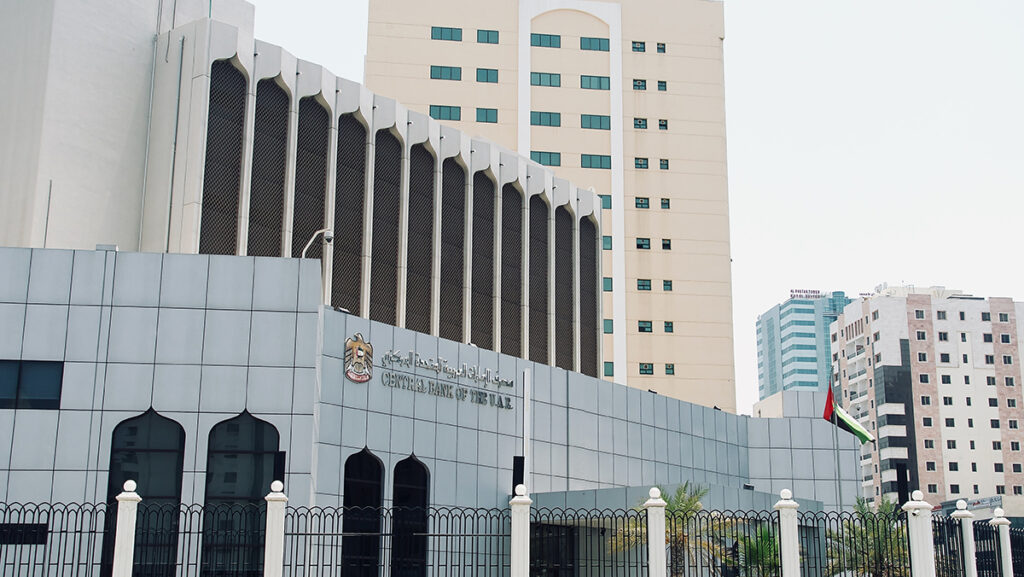The UAE central bank fine exchange house story is making waves across the financial sector. Recently, the UAE central bank imposed a hefty $27.8 million fine on a local money exchange company for failing to follow critical financial regulations. This significant penalty marks one of the strongest enforcement actions taken in recent years and reflects the central bank’s strict approach to maintaining a safe and transparent financial system in the UAE.
Background: Why the UAE Central Bank Imposed This Fine
The central bank of the UAE has the responsibility to regulate all banks and financial institutions operating in the country. Its goal is to ensure that the financial system remains secure, stable, and free from illegal activities such as money laundering and fraud.
The exchange house in question was found guilty of violating several important rules designed to protect the economy and consumers. These violations include lapses in anti-money laundering (AML) controls, weak customer verification processes, and failure to properly monitor and report suspicious transactions.

Because of these breaches, the central bank decided to issue the large fine as a punishment and a warning to others in the sector.
Understanding the Violations: What Went Wrong?
The violations committed by the exchange house fall into a few key categories:
- Customer Due Diligence Failures: The exchange house did not properly verify the identities of its customers, which is a fundamental requirement under UAE regulations. This failure creates risks that criminals can use the service to launder money or finance illegal activities.
- Insufficient Monitoring of Transactions: The exchange house failed to closely track large or unusual money transfers. Without such monitoring, suspicious activities can go undetected.
- Lack of Proper Reporting: Institutions are required to report suspicious transactions to the authorities. The exchange house neglected to report several such activities, breaking the rules.
- Weak Internal Controls: Effective policies, staff training, and systems to prevent fraud and money laundering were not adequately in place.
Each of these issues exposed the UAE financial system to potential risks and undermined public trust.
What Does This Fine Mean for the Exchange House?
The $27.8 million fine is one of the highest ever imposed on a financial institution by the UAE central bank. This penalty will have several serious impacts on the exchange house, such as:
- Financial Strain: The company will face a large financial burden, which could affect its profitability and daily operations.
- Reputational Damage: Customers and business partners may lose confidence in the exchange house’s ability to operate responsibly.
- Possible Regulatory Actions: Beyond the fine, the central bank may impose restrictions on the company’s license or require increased oversight.
- Operational Changes: The exchange house will need to urgently improve its systems and staff training to avoid further penalties.
The Role of the UAE Central Bank in Financial Regulation
The UAE central bank plays a crucial role in safeguarding the country’s financial health. It issues regulations to ensure all financial institutions:
- Follow international standards for anti-money laundering and counter-terrorism financing.
- Maintain robust risk management and internal control systems.
- Operate transparently and protect consumer interests.
By enforcing these rules, the central bank builds trust among investors, businesses, and the public.
The recent fine is a clear indication that the central bank will take strong action against any institution that fails to meet these standards.
How This Fine Affects the Exchange House Industry

The exchange house sector is a critical part of the UAE’s financial ecosystem. These companies handle billions of dollars in remittances and currency exchange every year, serving millions of customers including expatriates sending money home.
The UAE central bank fine exchange house event sends a strong warning to all other exchange houses operating in the country. It highlights the importance of:
- Strict compliance with all regulatory requirements.
- Investing in advanced monitoring and reporting technology.
- Providing continuous staff training on compliance and risk management.
- Collaborating fully with regulatory authorities during audits or investigations.
Those who fail to improve risk management face similar penalties and damage to their reputation.
Importance of Regulatory Compliance in the UAE Financial Sector
Regulatory compliance means following all laws and regulations set by financial authorities. It is not just a legal requirement but also essential for:
- Preventing financial crimes like money laundering and fraud.
- Protecting customers’ money and personal information.
- Ensuring the stability of the financial market.
- Enhancing the country’s reputation as a trustworthy financial hub.
The UAE has grown into a major global center for finance and trade. Maintaining this status depends heavily on strong regulation and enforcement.
What Customers Should Know About Using Exchange Houses
Customers who use exchange houses for money transfers or currency exchange should understand the increasing role of regulations. While these rules protect their money, they also mean that:
- They may need to provide more documents for identity verification.
- Some transactions might take longer due to extra checks.
- They should only use licensed and reputable exchange houses.
These measures are designed to keep their transactions safe and transparent.
How the UAE Central Bank’s Strict Actions Help Shape the Future
The large fine imposed on this exchange house sends a clear message that the UAE central bank is serious about protecting its financial system. It encourages all financial institutions to:
- Upgrade their compliance programs.
- Adopt new technologies to detect fraud and suspicious behavior.
- Work proactively with regulators to ensure full transparency.
This will help the UAE attract more global business, investment, and talent.
Comparison with Previous Regulatory Actions in the UAE
The UAE central bank has fined other financial institutions in the past, but this $27.8 million penalty stands out because of its size and the severity of the violations. Past fines were often smaller and focused on less serious breaches.
This latest fine shows an evolution in enforcement, reflecting the UAE’s growing ambition to align fully with global best practices in finance and compliance.
The Broader Impact on the UAE Economy and Financial Market
When financial institutions operate responsibly, the entire economy benefits. Strong regulation:
- Increases foreign investor confidence.
- Reduces risks of financial crimes that can harm businesses.
- Supports sustainable economic growth.
By holding institutions accountable, the central bank strengthens the country’s financial reputation worldwide.
What Steps Can Exchange Houses Take Moving Forward?

To avoid fines and penalties like this, exchange houses should:
- Conduct thorough audits of their compliance programs.
- Implement robust customer identification and transaction monitoring tools.
- Provide regular training to employees on anti-money laundering rules.
- Foster a culture of transparency and ethics.
Early detection and correction of weaknesses can prevent costly penalties and improve business trust.
Conclusion: Strong Enforcement for a Safer Financial Future
The UAE central bank fine exchange house case is a landmark moment in the country’s financial regulation history. The $27.8 million fine highlights the central bank’s zero-tolerance policy for breaches that risk the system’s integrity.
Financial institutions in the UAE must view this as a serious warning. Compliance is not optional—it is essential to survive and thrive in a competitive market.
For customers, this means safer financial services backed by strong oversight. For the UAE, it means a more secure, transparent, and attractive financial hub ready to meet future challenges.
Read More: UAE New Media Law: Major Changes Announced for Digital Content Sector













